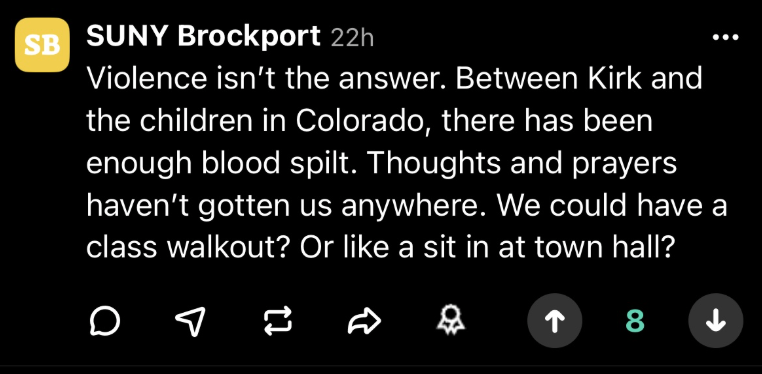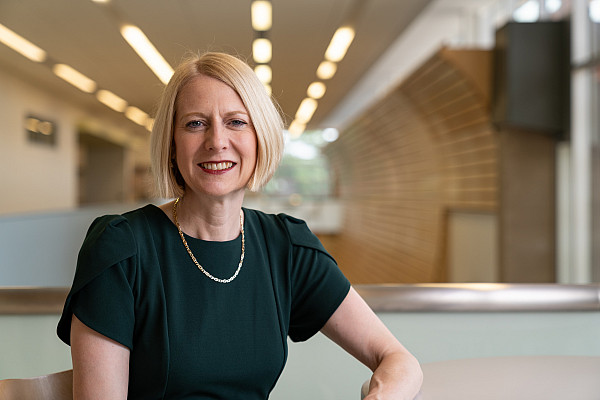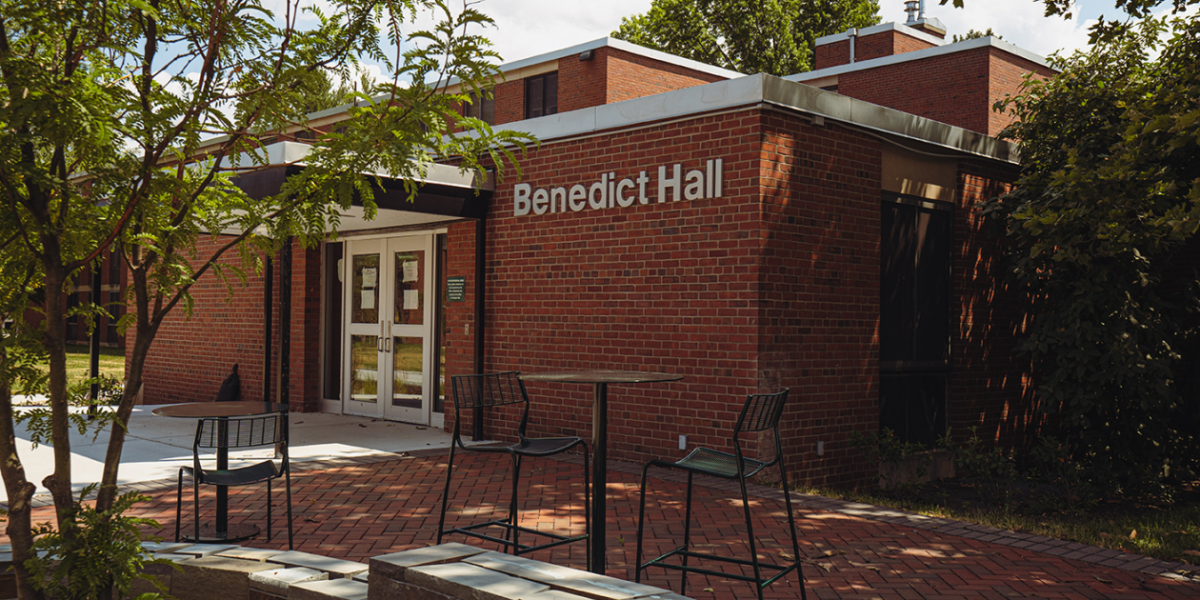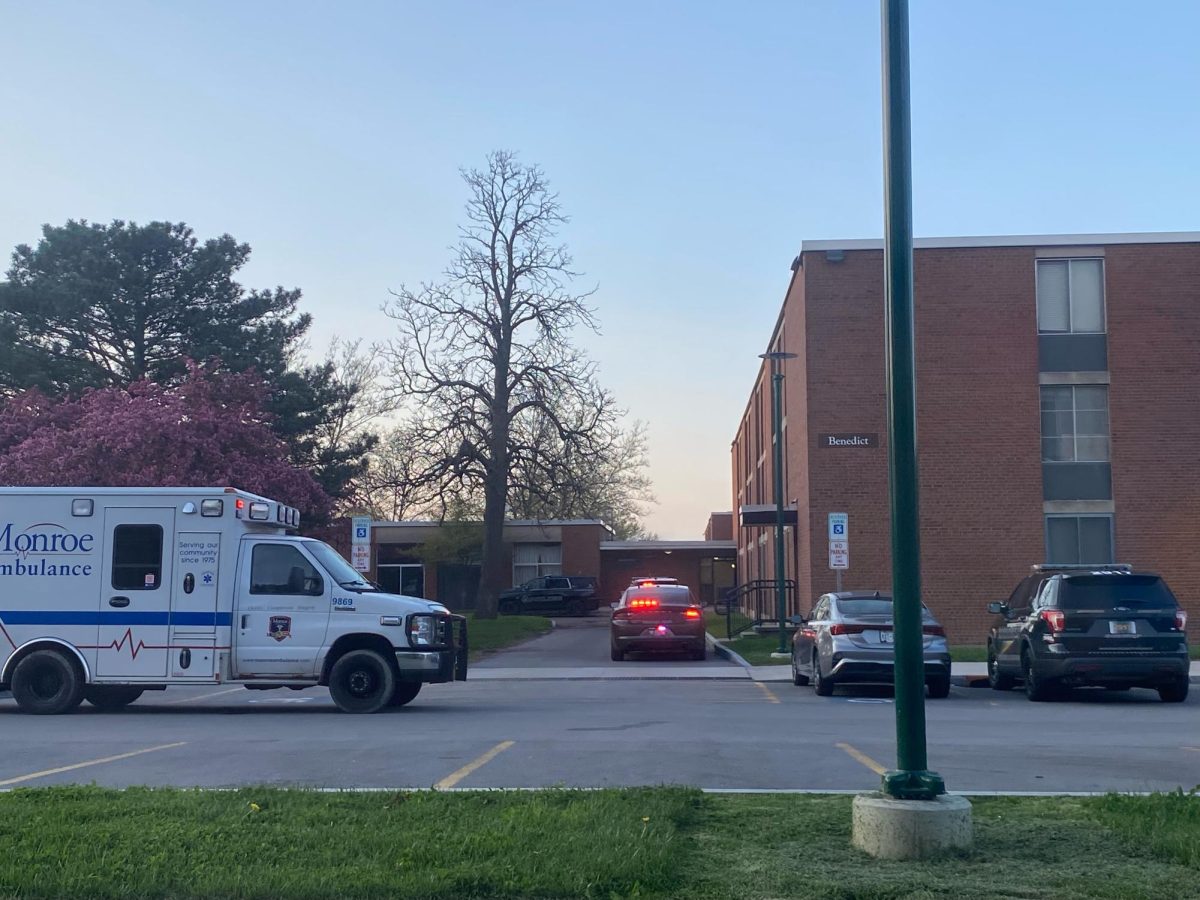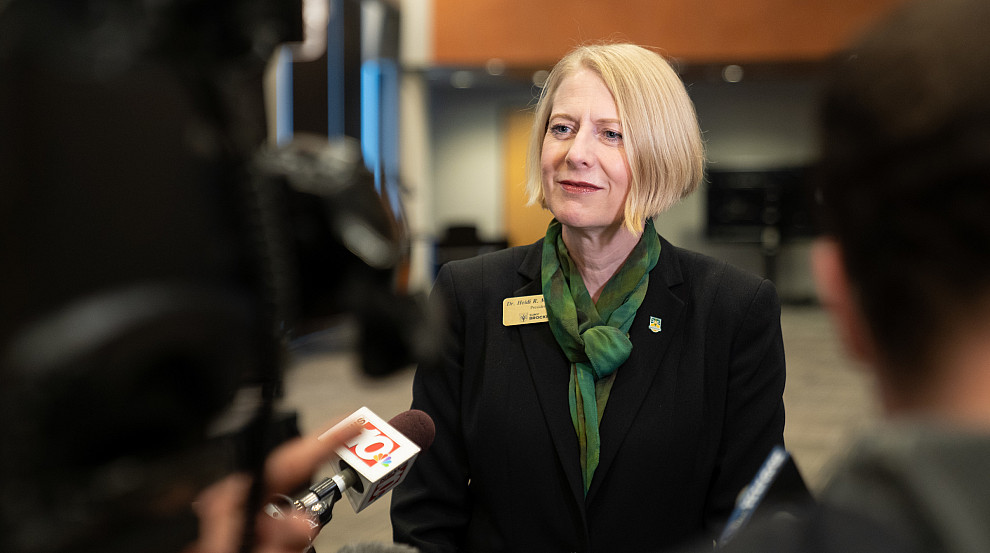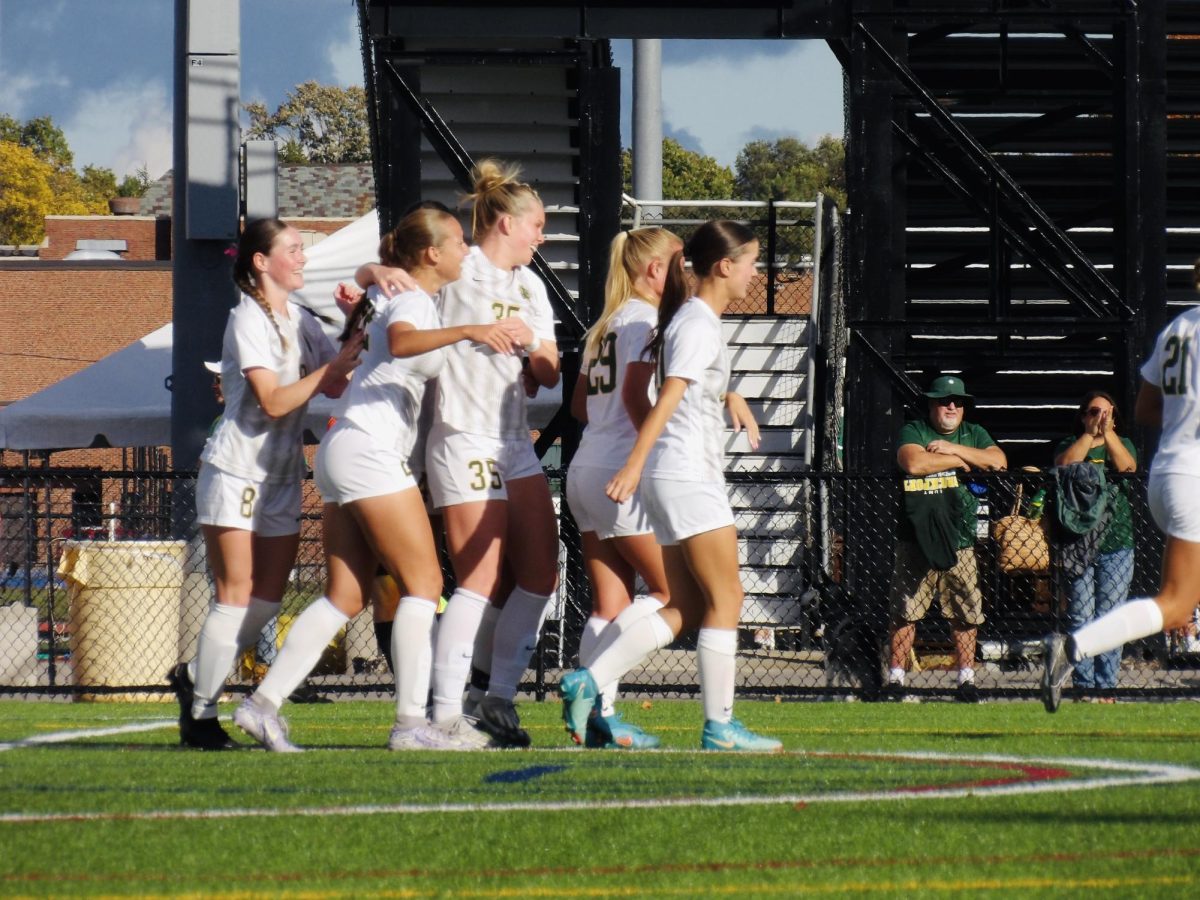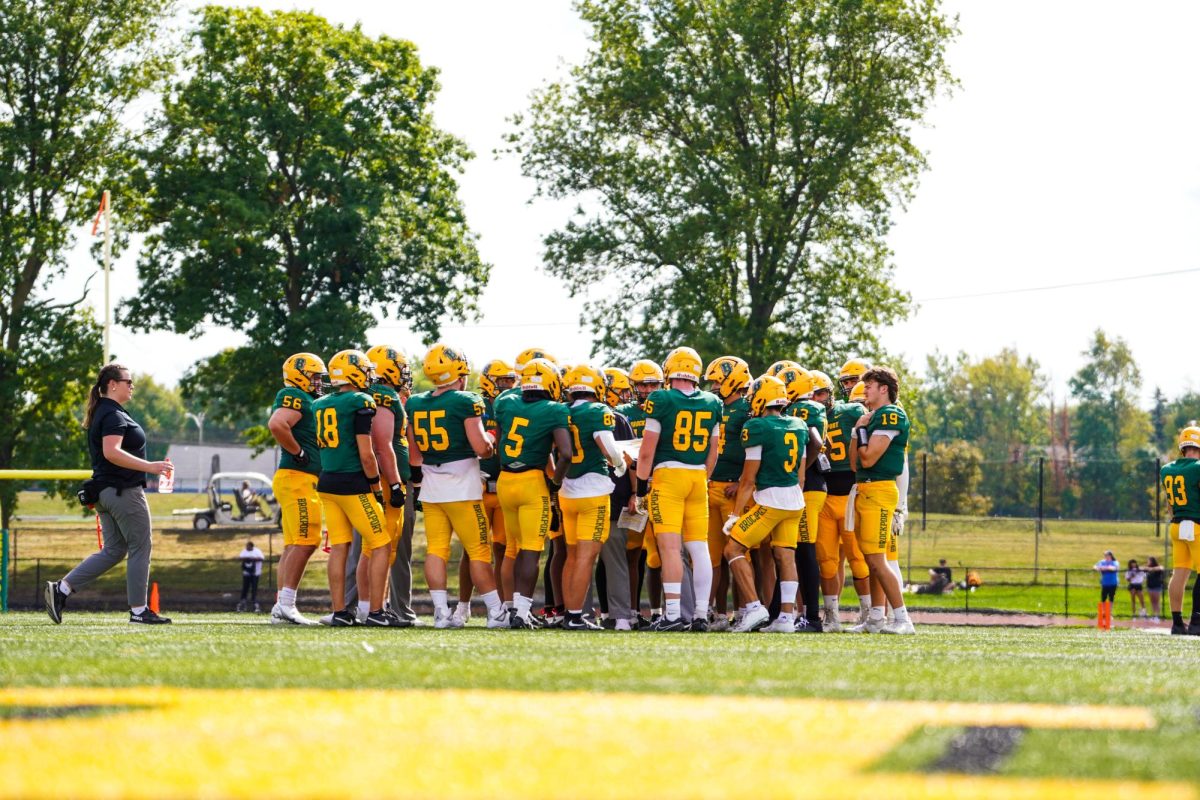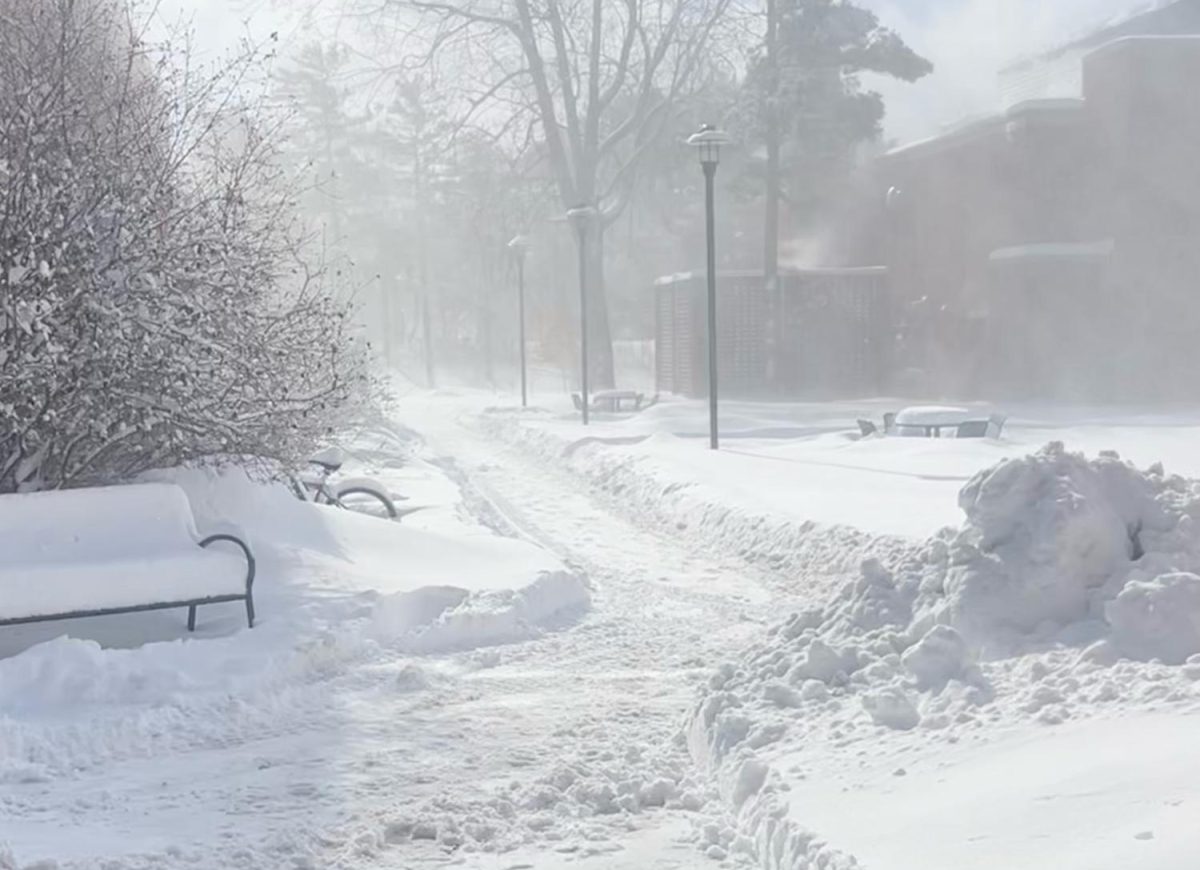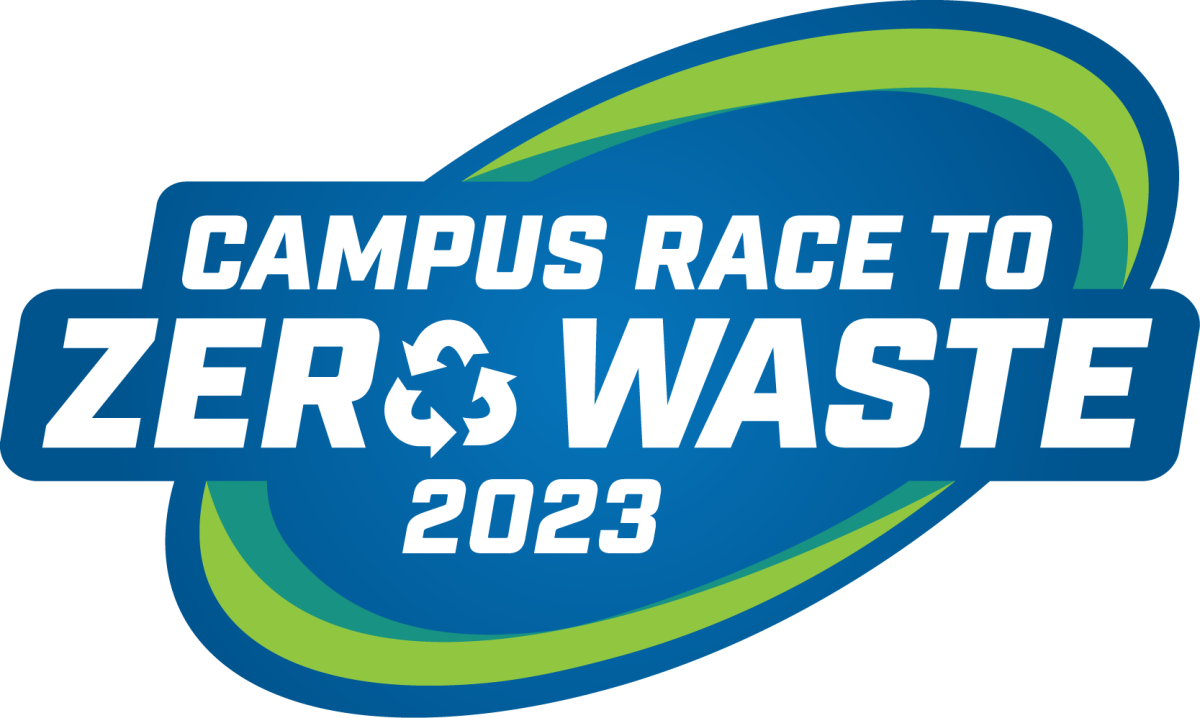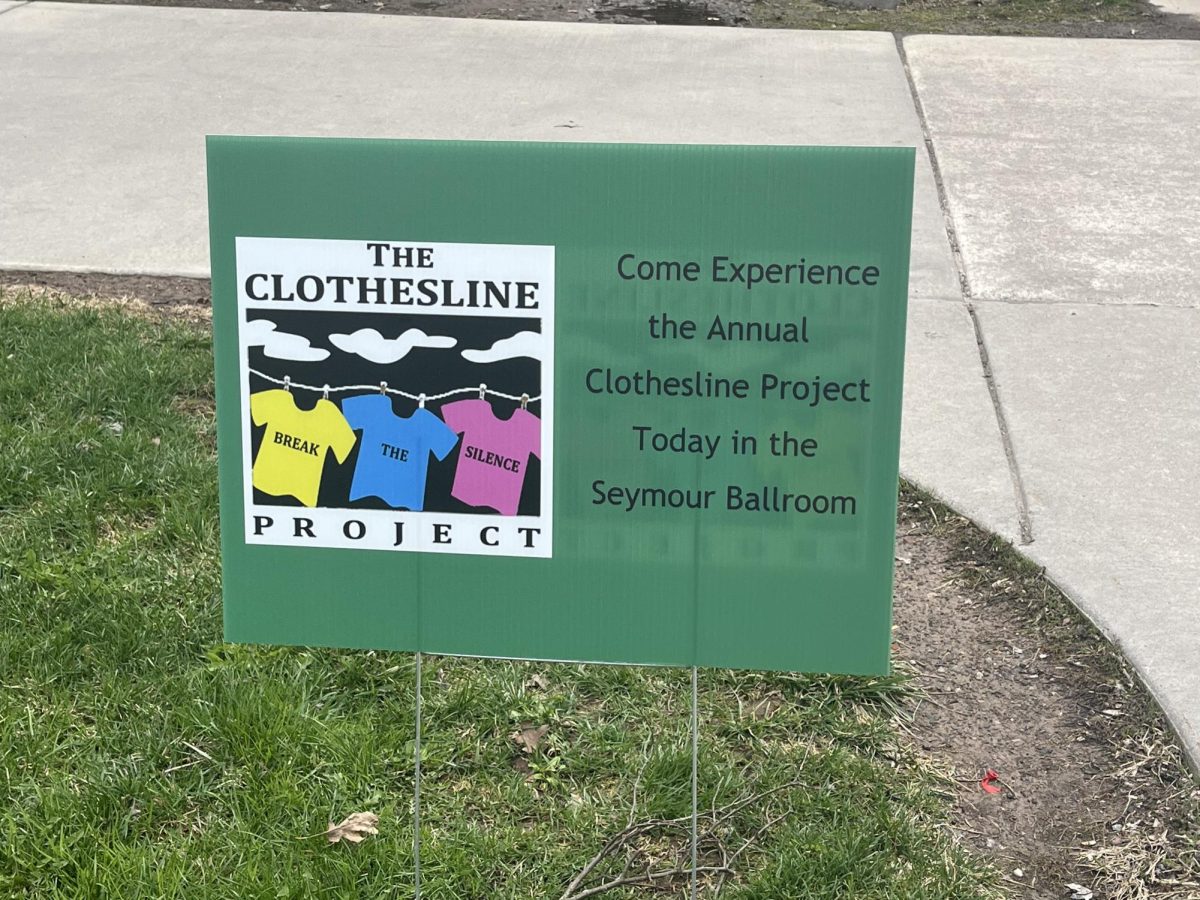We all know that doing our part can make a difference. But what if the entire campus came together to make a big change? Join Brockport in the Race to Zero Waste, a campaign aimed to improve efforts to reduce or eliminate waste across North American college campuses.
During the late hours of Jan. 26, a waste audit took place at two resident halls at SUNY Brockport. The audit found that out of the accumulated total of 166 pounds of waste, 50% could be recycled, composted or donated. Items included paper, cardboard, plastic bottles, aluminum cans, electronics and vapes. According to the United States Environmental Protection Agency, recycling has many benefits for the environment. Reducing waste sent to landfills and incinerators cuts down on harmful emissions and pollution. Recycling also helps conserve natural resources by reducing the need for extracting items such as water and timber. This helps improve the planet and our quality of life.
In order to promote sustainability efforts, Brockport is participating in The Race to Zero Waste. The campaign’s mission is to use a friendly competition to provide students with tools and opportunities to inspire and mobilize colleges to increase their efforts to reduce or eliminate waste.
Each spring, colleges across the US and Canada report the amount of recycling and trash collected each week across campuses. They are then ranked in different categories such as which campus recycles the most on a per capita basis, has the best recycling rate as a percentage of total waste, and which schools generate the least amount of combined trash and recycling. Edan Perry, an environmental science major, is hopeful about practicing zero waste at Brockport.
“I think this campaign is very important because we have 6,000 students here and 6,000 people produce a lot of waste,” Perry said. “I feel like it’s a great way to get students more involved in reducing their personal environmental footprint. It’s also a great way to earn Brockport some credit amongst other schools.”
The winning school in each category is provided with national recognition through the Race to Zero Waste website and in a national press release. Prizes also include an award made from recyclable materials, as well as the right to host that category’s special traveling trophy for the coming year.
Having a zero waste lifestyle is more than just recycling, although this remains a significant component. It entails lessening your use of disposable items and eliminating sending waste to landfills. Almost half of all greenhouse gas emissions come from the production and use of goods, including products, food, and their packaging. Zero waste reduces pollution caused by extraction, manufacturing and disposal. It also benefits the economy and helps build social equity and community.
SUNY Brockport is currently placed at 53 out of 81 schools at 2.341 pounds of recycled material per capita. Brockport junior Taylor Brooks looks forward to the impact the Race will have on the campus.
“We have a big focus on waste on campus, and not much in terms of recycling,” Brooks said. “I hope this campaign motivates students to participate in recycling their waste.”
To help the environment and help Brockport win, make sure to reduce, reuse and recycle! When recycling, make sure to keep food and liquid out of recycling bins. Recycle only clean bottles, paper, cans and cardboard. To reduce waste, use reusable items such as water bottles and grocery bags. Shop wisely, such as buying in bulk to reduce packaging, and buying second hand items.
Dr. Marcie Desrochers, a psychology professor with a specialty in Psychology of Sustainability, has high hopes for the campaign and the campus environment.
“I am proud to be a part of this Green Campus Initiative,” Desrochers said. “Everyone needs to do their part to make SUNY Brockport a sustainable campus for the 21st century and beyond! Green is gold!”
The competition is on now until Mar. 25. To find out more information, click here!

